Hong Kong protests: police have right to remove masks from reporters and patients at any time under new law, top brass tell frontline officers
- Force held its first seminar with 400 officers, briefing them on the details of the newly enacted anti-mask law and related guidelines, insiders say
- Law gives police the power to remove a mask from anyone in a public place whenever they reasonably believe the person is wearing it to prevent identification
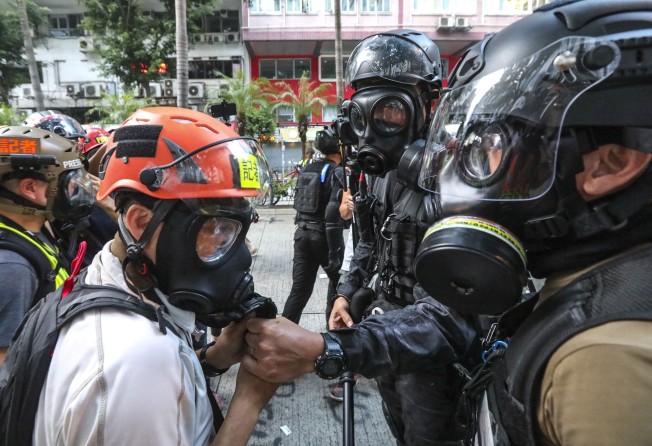
Hong Kong police have the right to remove masks from reporters and patients at any time, the force’s top brass have told frontline officers and that anyone who resists can be arrested.
The Post was told the force held its first seminar with 400 officers at the police headquarters in Wan Chai on Wednesday evening, briefing them on the details of the newly enacted anti-mask law and related guidelines.
The city’s leader, Chief Executive Carrie Lam Cheng Yuet-ngor, last Friday invoked the colonial-era Emergency Regulations Ordinance to enact a ban on masks at public assemblies after the 17th straight weekend of protests triggered by the government’s now-withdrawn extradition bill.
The Prohibition on Face Covering Regulation states that performing an activity connected to employment that requires facial coverings for physical safety can be used as a “reasonable excuse” or defence when a person is prosecuted. The same exemption applies to those with a “pre-existing medical or health reason”.
The law also gives police the power to remove a mask from anyone in a public place whenever they reasonably believe the person is wearing the covering to prevent identification.
Facial coverings are also allowed for religious reasons.
A chief inspector who attended the talk said the top brass made it clear that the law granted officers the power to remove a journalist’s mask for an identity check even if he or she was covering a protest.
“If the reporter refuses to take off the mask, we’ve been told we can make an arrest,” the insider said.
“The same applies to a patient who is proven they are sick with a medical certificate. Wearing the mask to prevent transmission of illness does not count. Even if one has a medical document in their hand, they must take off the mask when asked.”
He added that the burden of proof rested with the defendant, while officers were advised to give a warning twice if the situation allowed.
“If the arrestees think they can offer a reasonable excuse for covering their faces at an assembly, they can tell the judge during the trial, according to the law,” the chief inspector said.
“In any situation, a person must remove the mask when asked to identify themselves. No reasonable excuse is allowed. Surely he or she can wear it again after the check.”
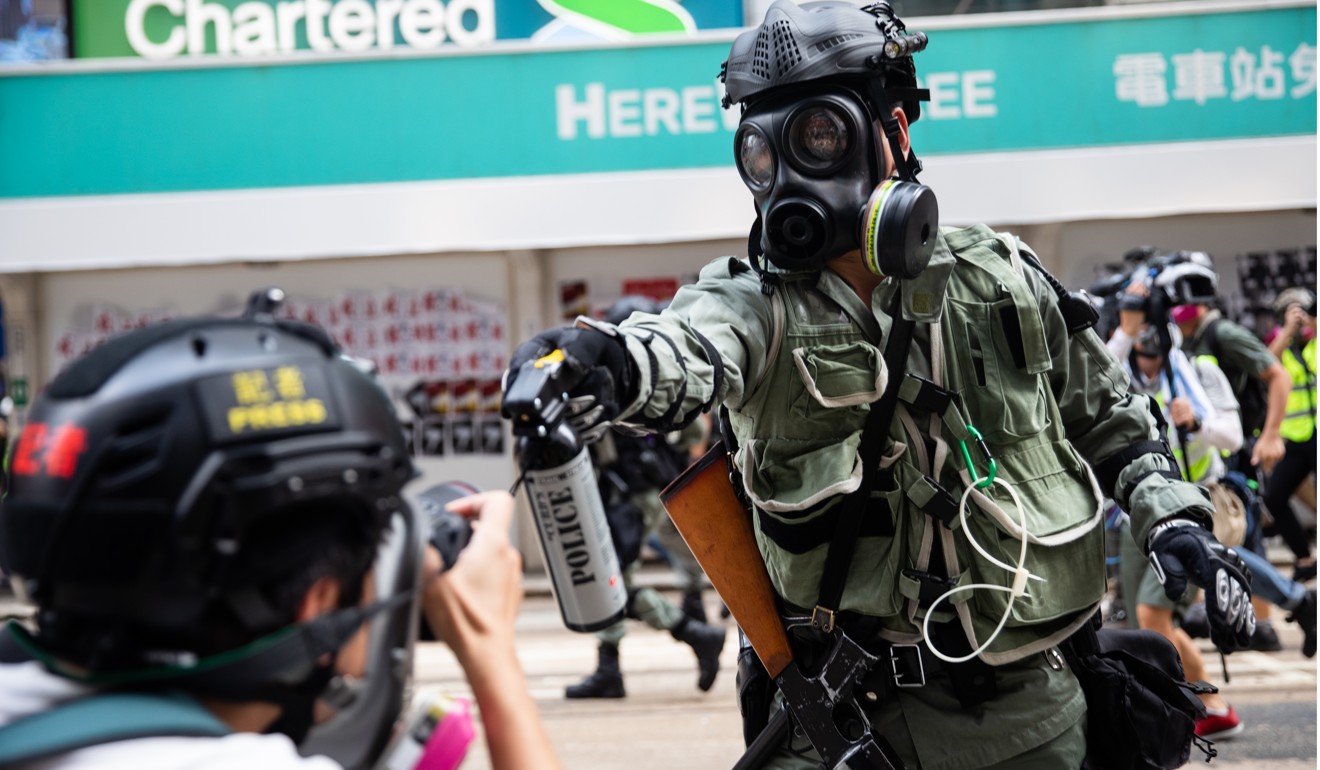
Police removed journalists’ masks on Sunday after tear gas was fired, prompting anger in the industry.
Nearly 5,000 rounds of tear gas have been fired since the protests broke out four months ago.
The source said: “Reporters are not exempt from taking off their masks when asked. If they were, protesters could pretend to be reporters by wearing masks and yellow vests and having a fake press pass to avoid being checked.”
Another inspector who attended the seminar said the reasonable excuse arose only when reporters were wearing a mask for protection when tear gas was fired.
“If reporters are wearing gas masks in a peaceful environment and are not doing a reporting job, they don’t have an excuse,” the inspector said. “The job title does not give them immunity.”
Stuart Hargreaves, a public law professor at Chinese University, said the new regulation required journalists to temporarily remove a mask being worn in a public place to allow identification checks by police, and those resisting did not appear to have any defence under the legislation.
“The police have long been able to demand identification in such circumstances even without the mask law [ie, production of an identity card],” he said, adding there was nothing under the law to stop the individual putting their mask back on once such checks were completed.
But he said the law might contravene the Basic Law, the city’s mini-constitution.
“Given that journalists may be wearing a mask not to prevent identification but rather to prevent inhaling tear gas, the court will have to consider this is an unjustified restriction on the Basic Law’s protection of freedom of the press if it prevents journalists from being able to cover protests adequately.”
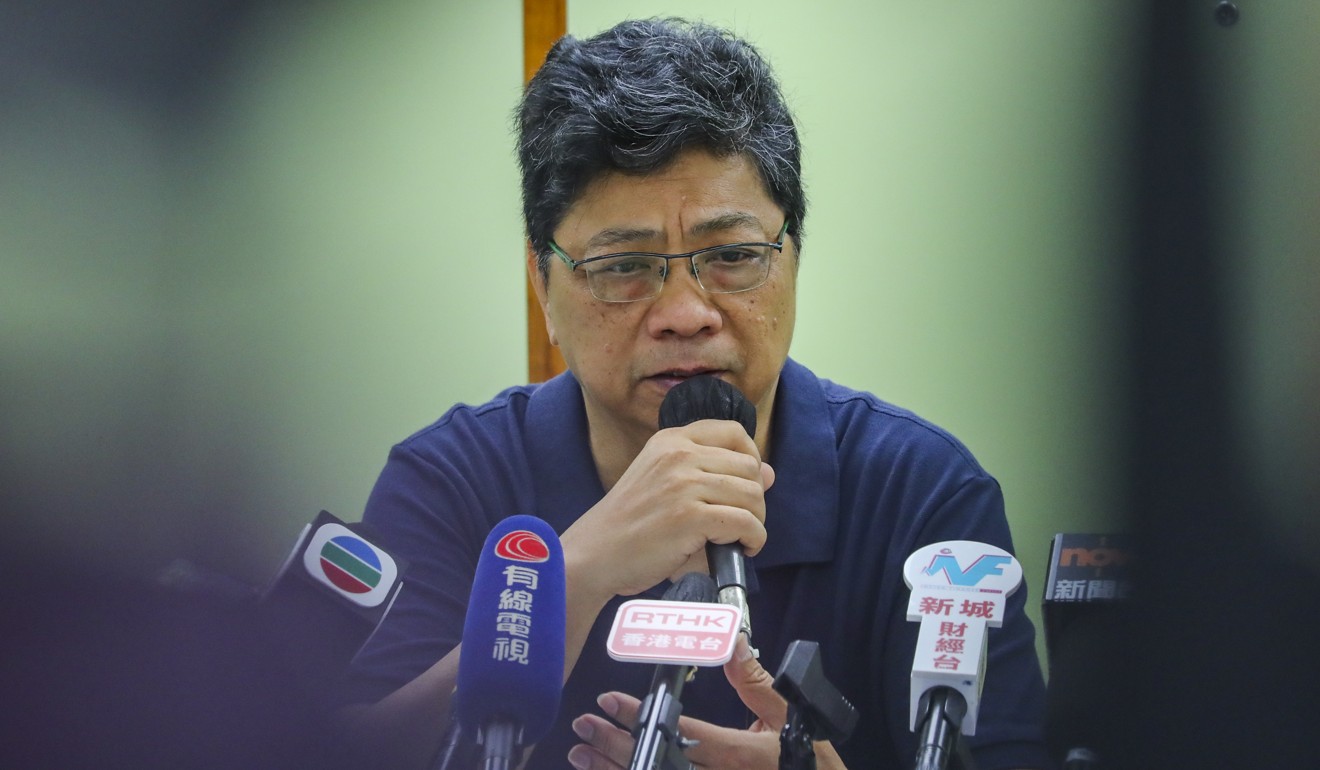
Chris Yeung Kin-hing, chairman of the Hong Kong Journalists Association, said the requirement would severely affect the work of the press on the front line of protests.
“There will be a certain amount of time that a journalist undergoing police checks cannot report on what is going on, particularly if serious clashes are taking place and officers are subduing protesters with excessive force,” he said.
“The journalists may also inhale tear gas during checks, putting them at risk and rendering them unable to carry out their work later.
“This is a very important matter as the public’s right to know is at stake at this crucial time in the city.”
Chief Secretary Matthew Cheung Kin-chung, the city’s No 2 official, said on Thursday that the law was adopted to impose a deterrent effect amid the social unrest and residents should not be worried about it hurting the freedom of speech.
“It is a legal tool to strengthen law enforcement,” Cheung said.
Addressing the issue on Tuesday, Lam said there would be “complications and misunderstandings” in enforcing the ban, but stressed that an exemption was in place for journalists.
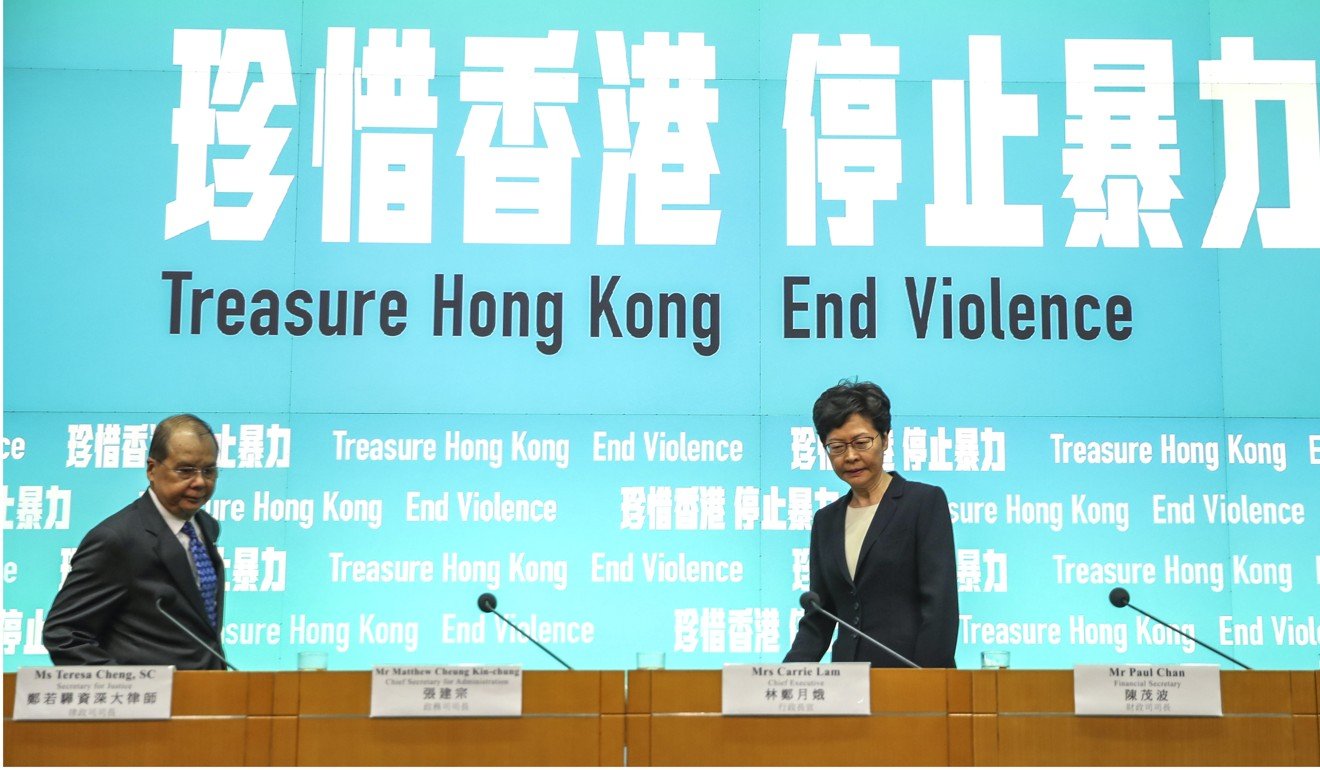
Tim Pang Hung-cheong, spokesman of the Patients’ Rights Association, a concern group, said the mask ban would cause psychological pressure on those who were ill.
“Patients will feel labelled and humiliated to be unmasked publicly. Some may be wearing masks when they go out because there is serious air pollution. Now they may think twice before doing so,” he said.
Pang said he was especially worried about the public health implications of the law. “After the outbreak of Severe acute respiratory syndrome in 2003, Hongkongers have gradually picked up the habit of wearing masks to prevent the spread of diseases. With the winter influenza season arriving, I don’t know if it will make the flu more widespread, but it may have some impact.”
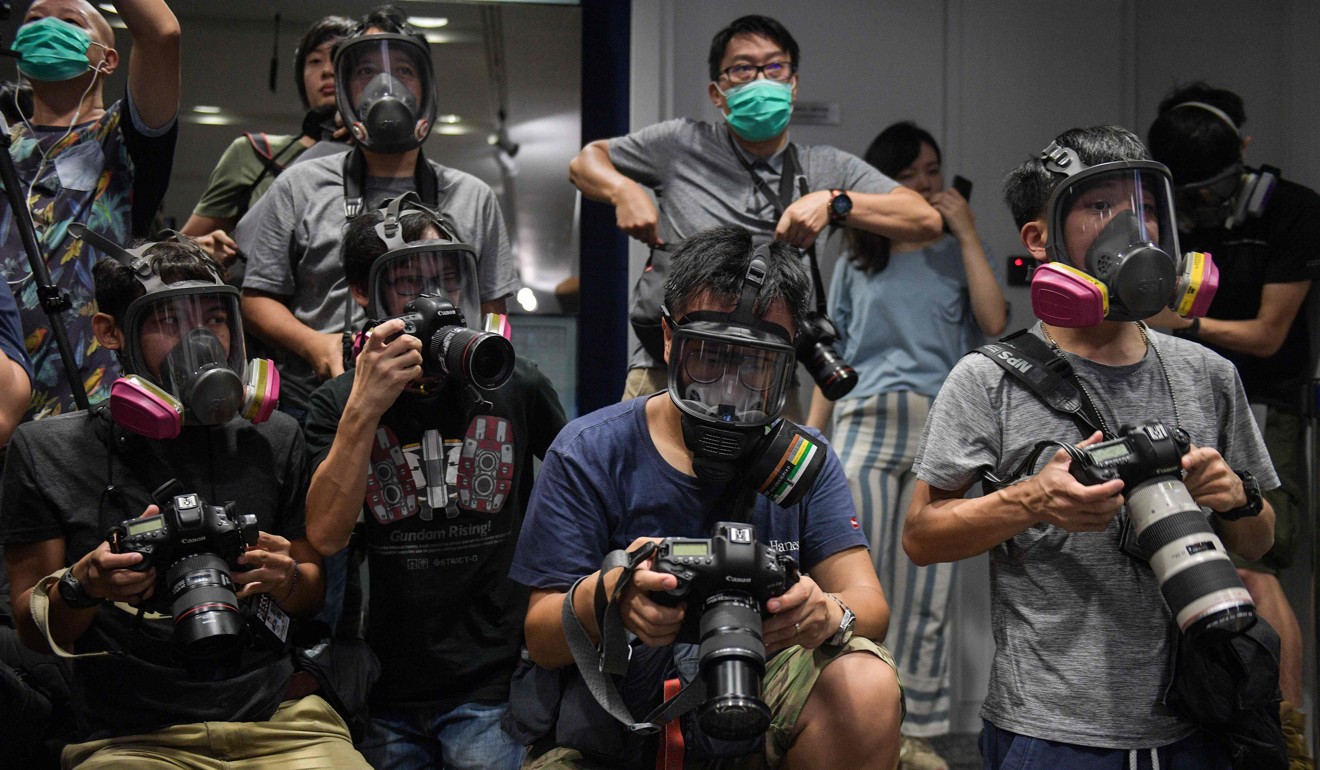
Police had arrested at least 77 people for violating the new law as of Tuesday.
The new law, which critics claim is unconstitutional, sparked several days of violence and vandalism as mobs of protesters rampaged across the city, trashing metro stations, government property and private businesses.
Tens of thousands of Hongkongers took part in illegal marches, while groups of radicals vandalised banks and stores with mainland China links, as well as MTR stations and lines, as they accused the city’s rail operator of helping police.